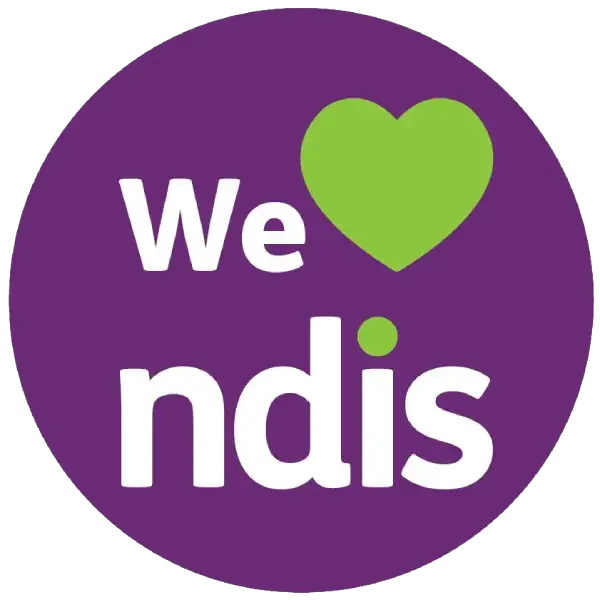Enquire about our SIL vacancies
Aging and disabilities can present a series of physical and emotional challenges, often making it difficult for individuals to live independently or manage everyday tasks. In such situations, in-home therapy offers a personalised, comfortable, and effective way to maintain health, well-being, and dignity while providing a supportive environment for individuals to thrive. This blog post dives deeper into the various in-home therapy options available for aged care and disability support, highlighting how these services enhance quality of life, increase independence, and promote recovery.
1. Physical Therapy (Physiotherapy)
Physical therapy is an essential component of in-home care for individuals dealing with the effects of aging, injury, or disabilities. This type of therapy focuses on improving mobility, strength, flexibility, and overall function. Whether it’s recovering from surgery, managing chronic conditions like arthritis, or addressing mobility issues related to aging, physical therapy can help individuals regain their independence and maintain a higher quality of life.Key Areas of Physical Therapy:
- Mobility: Working on walking, standing, and sitting balance.
- Strengthening: Improving muscle tone and joint flexibility.
- Postural Correction: Addressing poor posture and muscle imbalance.
- Pain Management: Techniques for managing chronic pain through exercises or modalities like heat, cold, or ultrasound therapy.
- Balance and Coordination: Exercises to improve the ability to move without falling, reducing the risk of falls.
Benefits of In-Home Physical Therapy:
- Convenience and Comfort: Receiving therapy in a familiar environment reduces stress and enhances the healing process.
- Personalised Care: Therapists tailor exercises to the individual’s specific needs, making progress more effective.
- Reduced Risk of Injury: Home-based physical therapy helps improve balance, strength, and mobility, decreasing the chances of falls and injuries.
- Independent Living: With the right therapy, individuals can enhance their mobility and live more independently.
2. Occupational Therapy (OT)
Occupational therapy focuses on helping individuals regain the skills necessary for daily life, particularly those activities that are challenging due to aging or disabilities. These can include everything from dressing and bathing to cooking and driving. For elderly individuals and those with disabilities, occupational therapy enables them to live more independently by modifying tasks or their environment to make daily activities easier and safer.What Occupational Therapists Do:
- Activities of Daily Living (ADLs): Help individuals regain the ability to perform daily tasks like eating, dressing, grooming, and bathing.
- Home Modifications: OT specialists assess the home environment and suggest adjustments such as adding grab bars, ramps, or larger doorways for wheelchairs.
- Assistive Devices: Occupational therapists recommend tools that assist with daily activities (e.g., specialized utensils, reachers, or devices to help with mobility).
- Cognitive and Sensory Support: For those with dementia or neurological impairments, OTs help with cognitive exercises and sensory support.
Benefits of Occupational Therapy at Home:
- Improved Independence: Through adaptations, people can perform tasks they may have previously found difficult, boosting confidence and self-esteem.
- Safety: OTs reduce the risk of falls by improving the layout of the home and making daily tasks more manageable.
- Quality of Life: By encouraging hobbies, social engagement, and self-care, OTs can help clients maintain their sense of purpose and joy.
- Caregiver Support: OTs also train family members or caregivers on how to best support the individual’s daily needs.
3. Speech Therapy
Speech therapy addresses more than just speech disorders; it also covers issues related to language, communication, and swallowing—crucial areas that can be impacted by aging, strokes, neurological diseases (such as Parkinson’s), or developmental disabilities. In-home speech therapy can be incredibly beneficial for those who need help managing communication difficulties or swallowing challenges.Common Conditions Addressed by Speech Therapy:
- Speech Disorders: Issues such as slurred speech or difficulty pronouncing words.
- Language Impairments: Struggles with understanding or forming sentences and words.
- Cognitive Communication: Challenges with attention, memory, and problem-solving skills.
- Swallowing Disorders (Dysphagia): Difficulty swallowing, which can lead to choking and malnutrition.
Benefits of In-Home Speech Therapy:
- Comfort and Familiarity: Therapy takes place in a familiar setting, making it easier for individuals to engage in therapy.
- Holistic Support: Speech therapists can assess not just communication but overall health, including nutrition and hydration needs related to swallowing.
- Customizable Plans: Speech therapy is tailored to address the specific challenges and goals of each individual.
- Family Involvement: Speech therapists also educate families on how to improve communication and manage swallowing difficulties safely at home.
4. Palliative Care and Pain Management
For individuals with terminal illnesses or advanced chronic conditions, in-home palliative care provides relief from physical pain, emotional distress, and psychological challenges. The goal of palliative care is not to cure but to improve quality of life and provide comfort, helping patients live their final days with dignity and as much independence as possible.Key Components of In-Home Palliative Care:
- Pain Management: Use of medications or alternative treatments (e.g., acupuncture, massage) to reduce pain and discomfort.
- Symptom Control: Addressing symptoms like nausea, fatigue, or difficulty breathing.
- Psychological Support: Helping individuals and their families deal with emotional issues, grief, and fear.
- Family Support and Education: Educating family members on how to care for their loved one and manage expectations during this difficult time.
Benefits of In-Home Palliative Care:
- Comfortable Environment: Allows individuals to stay in their own homes, surrounded by family and familiar surroundings, which can be emotionally comforting.
- Comprehensive Care: Offers a holistic approach to both physical and emotional well-being.
- Enhanced Family Bonding: Families can spend more meaningful time with their loved ones while receiving guidance on providing care.
- Cost-Effective: Reduces hospital or long-term care facility costs.
5. Mental Health Counseling and Therapy
Mental health is just as important as physical health, especially for elderly individuals and those with disabilities. In-home mental health therapy offers counseling services for issues like depression, anxiety, loneliness, and grief. For people facing age-related challenges or disability-related stress, in-home therapy can provide valuable emotional support and coping strategies.Types of Mental Health Support Provided:
- Individual Counseling: One-on-one therapy for conditions like depression, anxiety, and grief.
- Cognitive Behavioral Therapy (CBT): A common approach to treating anxiety and depression by challenging negative thought patterns.
- Group Therapy: In some cases, home-based group therapy for those dealing with similar struggles.
- Family Therapy: Helping family members adjust and communicate effectively, improving the overall family dynamic and caregiving approach.
Benefits of In-Home Mental Health Counseling:
- Privacy and Comfort: Therapy in the home allows for a private, comfortable setting where individuals may feel less anxious or stigmatized.
- Accessibility: Provides therapy to those with mobility issues who might have difficulty attending sessions outside the home.
- Comprehensive Care: Holistic support, addressing both the physical and emotional aspects of aging or disability.
- Reduction in Hospitalization: By addressing mental health needs early, in-home counseling may help prevent the need for hospitalization or crisis intervention.
6. Nursing Services
In-home nursing care services provide direct medical care for individuals who require more advanced healthcare management but prefer to receive care in the comfort of their own homes. These services are especially helpful for those with chronic health conditions, disabilities, or post-surgical recovery needs. Nurses can administer treatments, manage medications, and monitor vital signs.Types of In-Home Nursing Services:
- Medication Management: Nurses ensure that medications are taken on time and in the correct doses.
- Chronic Disease Management: Regular monitoring and treatment for conditions like diabetes, heart disease, or COPD.
- Wound Care: Cleaning, dressing, and monitoring healing of wounds or surgical sites.
- Health Monitoring: Regular assessments of vital signs, blood pressure, and other indicators of health.
Benefits of In-Home Nursing Services:
- Quality Care at Home: Nurses provide high-level care, allowing individuals to remain in a familiar environment.
- Reduced Hospital Stays: In-home care helps to avoid unnecessary hospital visits or admissions.
- Individualized Health Plans: Nurses work with patients to create a health plan that fits their needs and preferences.
- Caregiver Support: Nurses can educate family members on how to assist with medical tasks and provide guidance on overall care.
7. Personal Care Assistance
Personal care assistance is not always considered “therapy,” but it plays an integral role in maintaining daily activities for elderly individuals and those with disabilities. Personal care assistants help with activities like dressing, bathing, eating, and mobility. These services ensure that individuals maintain their dignity and personal hygiene while receiving the support they need.Key Areas of Personal Care:
- Hygiene Assistance: Help with bathing, grooming, and oral hygiene.
- Dressing and Undressing: Assistance with putting on clothes or using adaptive clothing.
- Mobility Support: Help with moving from one place to another, including using mobility aids.
- Meal Assistance: Help with preparing meals or feeding.
Benefits of Personal Care Assistance:
- Improved Independence: Enables individuals to maintain a degree of independence, despite needing help with personal tasks.
- Prevention of Health Issues: Helps maintain proper hygiene, reducing the risk of infections and skin issues.
- Peace of Mind for Family: Families feel assured that their loved one is receiving the care they need.
Conclusion
In-home therapy options for aged care and disability support provide individuals with the opportunity to receive personalised, compassionate care in the comfort of their own homes. Whether it’s physical therapy, occupational therapy, mental health support, or nursing services, these therapies play a crucial role in maintaining independence, improving quality of life, and preventing unnecessary hospitalizations. With tailored solutions and the convenience of home-based care, individuals can continue to live with dignity, comfort, and support as they navigate the challenges of aging or living with disabilities. At Ambition Health Group, we are committed to providing exceptional in-home therapy services that empower individuals to live their best lives. Our team of dedicated professionals is here to help you or your loved ones receive the care and support you need, all in the safety and comfort of home.Recent Posts
Top Rated Services
Get A Quick Quote Now
Enquire about our SDA vacancies
Enquiry Now
Consult Our Care Experts
Grab Your Free Consultation Today!
Or give us a call to speak to someone now
1300 668 655









